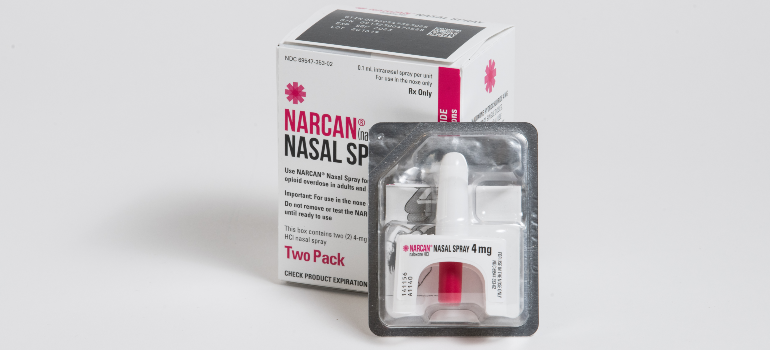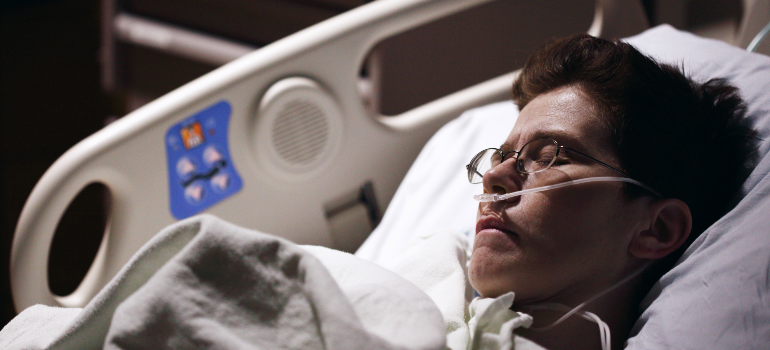Florida’s Overdose Crisis: Strategies for Intervention and Support
Get Help Now
Florida’s Overdose Crisis is a headline that has been rapidly circulating, and for good reason. The sun-soaked state has witnessed a worrying rise in overdose deaths over the past year. With overdose statistics reaching alarming new highs, the time to act and address the issue is now.
Important Data: Understanding Florida’s Overdose Crisis
Florida has been particularly affected by the increasing number of drug-related deaths. The Centers for Disease Control and Prevention report that in 2020, overdose deaths across the U.S. saw a staggering 29.4% increase from the previous year. Florida’s rate surged even higher at over 37%. In fact, with 7,579 people succumbing to a drug overdose in 2020, Florida stands second only to California in this grim tally.
The Greater Tampa Bay area is a testament to the state’s deepening opioid crisis. Over 1,200 residents from this region fell victim to opioid-related deaths in 2020, marking an increase from the 1,024 deaths reported the previous year.
Accessible Treatment and Rehabilitation: The Path to Recovery
Florida’s opioid crisis is evident, with the Tampa Bay region reporting an overdose rate significantly higher than the national average. The urgency for effective treatment options is undeniable. Evidence-based therapies and Medication-Assisted Treatment (MAT) have proven to be crucial components in helping individuals overcome opioid dependence. The Substance Abuse and Mental Health Services Administration has recognized the gravity of the situation, allocating $4.3 million to Florida organizations to provide treatment and support for opioid abuse amidst the national epidemic. It’s critical for those battling addiction to realize comprehensive treatment services are available, such as the offerings at Archstone Behavioral Health Florida. With the right support and evidence-backed treatments, the path to recovery is achievable.
Combatting Florida’s Overdose Crisis: A Multi-Faceted Approach
Naloxone Distribution and Training: The Lifesaver
Naloxone, known by its brand name Narcan, has emerged as a pivotal tool in countering opioid overdoses. The magnitude of its impact is underscored by CDC statistics showing a 187% surge in naloxone accessibility from 2010 to 2014. Correspondingly, opioid overdose reversals attributed to this life-saving drug shot up 160%. Recognizing its significance, Pinellas County has channeled $2 million into securing overdose reversal medications like Narcan and facilitating training for first responders. With enhanced awareness and education initiatives, the emphasis is on ensuring timely intervention during overdose incidents, a critical factor in determining survival outcomes.

Targeting the Synthetic Opioid Onslaught
Synthetic opioids, especially fentanyl, present a grim reality. Accounting for a staggering 3,200 of the 5,000 overdose deaths in Florida in 2019, their devastating influence is undeniable. The emergence of ISO, a potent opioid surpassing fentanyl by 20 times, further intensifies the need for harm reduction initiatives. As part of their strategy, authorities are amplifying efforts to elevate awareness about these deadly narcotics, ensuring that preventive measures reach at-risk populations, and highlighting the importance of early intervention and community partnerships in this critical battle.
Accessible Treatment and Rehabilitation: Finding the Right Path
While facing these grim numbers, there’s a beacon of hope: the accessibility to evidence-based therapies and Medication-Assisted Treatment (MAT). As Dianne Clarke, spearheading Operation PAR, highlights, seeking help is crucial.
Programs like Florida alcohol detox offer ways for individuals to break free from the chains of dependency. “Recovery is possible,” Clarke reassures. This sentiment rings true, especially when seeking specialized treatments. One of the most effective strategies to combat the opioid epidemic, as suggested by Clarke, is harm reduction. These policies aim to decrease the chances of drug abuse or overdoses. One shining example is Pinellas County’s syringe exchange program. Further supporting this, institutions emphasize the importance of fentanyl testing strips. This allows users to test their drugs for the presence of fentanyl, potentially saving countless lives.
Integrated Mental Health Services: The Dual Battle
Florida’s overdose crisis doesn’t solely stem from drug use – it has much to do with mental health. By simultaneously addressing substance use and mental health, we can develop a more comprehensive and effective approach to crafting recovery strategies.
Benzo Addiction Treatment in Dealing with Florida’s Overdose Crisis
Florida is trying to deal with the challenge of benzodiazepines, drugs often used but not limited to treating anxiety disorders. When individuals attempt to withdraw, they face a battle against both physical and psychological symptoms. It’s reported that benzodiazepine dependency frequently intersects with anxiety disorders. This is what makes an all-encompassing benzo withdrawal treatment so important. In addition to enhanced awareness and education about overdose risks, these treatments must include evidence-based therapies and Medication-Assisted Treatment (MAT).
Cocaine’s Effects on Florida’s Overdose Crisis
With its strategic coastal location, Florida has unfortunately become a port for narcotics, notably cocaine. Aside from its potent euphoric effects, this illicit drug also brings difficult withdrawal symptoms, leading many towards a dangerous cycle of relapse. Central to tackling this challenge is the comprehensive cocaine withdrawal treatment that encompasses both physical and psychological interventions. The state aims to provide a cohesive response by partnering with community organizations, nonprofits, and healthcare providers. Integrating mental health services into these detox programs ensures individuals are physically detoxed and psychologically prepared to face and manage triggers, greatly reducing the chances of relapse.

Xanax Detox: A Unique Challenge in Florida’s Overdose Crisis
Xanax, amidst its therapeutic benefits, hides a sinister potential for misuse, especially when used as a self-medication tool for anxiety or insomnia; Florida has observed a concerning spike in such cases. Those trapped in this dependency cycle find a lifeline in the specialized Xanax detox programs in Florida. These initiatives go beyond physical detox; they also include an integrated mental health approach. These programs emphasize early intervention and prevention by addressing the root causes of misuse.
Florida’s Strategic Response to the Overdose Crisis
In the face of Florida’s overdose crisis, the state’s commitment to public health has been unwavering. The Florida Department of Health (FDOH) remains at the forefront of this fight, dedicating its efforts to ensure the well-being of its residents. It’s heartening to see that their mission aligns with that of Archstone Behavioral Health Florida, both parties striving to promote a healthier state community. The foundation of their joint efforts lies in the Florida State Health Improvement Plan (SHIP), which strongly emphasizes mental well-being and substance abuse prevention.
In 2019, a pivotal initiative was launched: the OD2A program. Backed by the Centers for Disease Control and Prevention, this program amplifies overdose surveillance. Covering a vast network of 66 jurisdictions, including state and local territories, the program’s aim resonates deeply with the vision of various drug detox programs in Florida. The end game? A significant decrease in opioid misuse rates ensures that Florida stands united with the nation in its battle against substance abuse.
Peer Support Networks: Strength in Unity
Peer support groups play an indispensable role in the holistic recovery of an individual, with evidence suggesting that those involved in peer support networks have a 60% higher chance of sustained recovery than those who go it alone.
These networks operate on the premise of shared experiences, providing insights, strategies, and coping mechanisms that are grounded in real-life scenarios. A person undergoing benzo withdrawal treatment, for instance, will find solace in another who has walked that exact path. Additionally, the sense of accountability that these groups foster can be a driving force for many to stay on track with sobriety. They are instrumental in promoting awareness about therapies and harm reduction initiatives.

Early Intervention and Prevention Programs: Nipping the Bud
The saying “Prevention is better than cure” rings true, especially when addressing Florida’s overdose crisis. Early intervention initiatives targeting at-risk populations have proven to be a game-changer. Recent studies indicate that adolescents and young adults exposed to drug education programs are 40% less likely to experiment with drugs. By introducing early preventive measures, society can steer potential drug users toward healthier and more informed choices.
Addressing Florida’s overdose crisis requires a comprehensive, multi-faceted approach. As the data shows, naloxone has emerged as a pivotal tool in reversing opioid overdoses, saving countless lives. The alarming rise of synthetic opioids like fentanyl further emphasizes the importance of harm reduction initiatives. Coupled with the challenges the pandemic presented, the intricate relationship between mental health and substance abuse became increasingly clear. By merging these two facets of care, we can pave a more holistic path towards recovery. As we progress, collaboration, early intervention, and a blend of awareness and education initiatives will be our guiding lights in this battle against addiction and its devastating impacts.